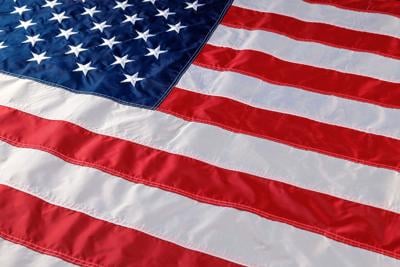What rhymes with America? Hint: Not much.
Strictly, it’s “Erica” and “esoterica” (and cheater-rhymes like “Mesoamerica”). You won’t get an epic out of that. Maybe a limerick; possibly a good one.
But whether in music or poetry, “America” is a problem. In a language that likes to tub-thump (as English does), the word trails off in two feeble syllables. The sound it makes is too weak to hinge a line.
We tend not to care, because popular lyrics in our lifetimes have become shotgun marriages of words and a tune, and often the words get the shaft. One syllable will be racked and tortured across a whole phrase of notes. Or a half-dozen words will be crammed into too few notes (cough ... cough ... Springsteen).
But one of the delights of the Christmas season just passed was singing classic carols and hymns. In them, you feel the tune fit like bushing into the flow of words.
“Joy to the World” is precise; down to the note-by-note fit of “heav’n and nature sing” — “heaven” always was one syllable in verse, and the music knows it.
End of the line
So poets and songwriters kept “America” away from their rhymes. It isn’t rhymed in “America the Beautiful” or in “God Bless America” or in “My Country ’Tis of Thee,” or even the semi-unrhymed “This Land is Your Land.”
The first attempt at an epic poem about America, “The Columbiad” (1807) checks in at more than 7,000 lines of iambic pentameter couplets that don’t seem to use the word “America.” It also is nowhere in the national anthem, even the verses nobody sings.
There was, however, a work-around.
When literature in England picked itself up from the collapse of Middle English, it set itself new rules to write by, and they were Latin’s rules, strict ones. But in impossible situations, there were “allowable” exceptions to the restrictions. Final -a is one of them.
The -a words could be rhymed with “the Words that end in AW, AY, EA, EIGH, and EY” (according to one early guide to English poetics). That means a poet or lyricist could strengthen and lengthen the -a at the end of a word if it must rhyme.
And sure enough by the 1640s the young poet Cowley is rhyming “tarantula” with “as much as they.” (Only a Metaphysical would try that.)
The same was the usual sound given to “America” in songs and rhymed verse: “Ameri-KAY.” “America” is so rhymed in poetry by the 1640s. It continues so rhymed regularly through the mid-19th century.
In one collection of 205 patriotic songs from the early 1800s, “America” was rhymed with “say,” “away,” “lay,” “may,” “gay,” “pay,” “play,” “day,” “obey,” “stray,” “pray,” “dismay,” “array,” “fray,” and “decay.” There’s history in a nutshell for you.
In two songs “America” was rhymed with “me,” “sea,” “be” (as though Ameri-KEE). In one it rhymes with “need not to fear,” which I can make no head or tail of.
Gone away
By the 1830s, when the wave of Irish immigration began, “Ameri-KAY” becomes stereotypical on both sides of the Atlantic as the Irish pronunciation of the country name.
That ambivalence seems to have discouraged the pronunciation in general use: Is it Irish dialect or is it proper poetics? And with the loosening of metrical rules in modern poetry, “Ameri-KAY” became unnecessary.
You may have heard it sung lately, though, if you were among those who paused to say farewell to a world that had Shane McGowan in it.
His fiercest lyrics always seem also to have a tender love song trapped in them, fighting for the melody. He sings, in “The Body of an American,” which gathers the tumultuous sweep of the whole Irish-American nation into one rowdy wake:
Fare thee well, gone away,
there’s nothing left to say
and rhymes it with
my love’s in Amerikay.
Well, the rascally Pogue knew his history, on both sides of the sea. Over the last century America has lost its rhyme. By the end of the year we should know if it still has the reason.
Doug Harper is a copy editor at LNP | LancasterOnline. “Unscripted” is a weekly entertainment column produced by a rotating team of writers.



 ERIN NEGLEY | Staff Writer
ERIN NEGLEY | Staff Writer![5 of the best books I read in 2023, from 'A Psalm for the Wild-Built' to 'Chain-Gang All Stars' [column]](https://bloximages.newyork1.vip.townnews.com/lancasteronline.com/content/tncms/assets/v3/editorial/4/c2/4c251a94-ab17-11ee-b2c6-f393711f754d/6596d15b9c6c2.image.jpg?resize=163%2C200)

!['I love Lancaster': We caught up with Marie Osmond before her American Music Theatre concert [Q&A]](https://bloximages.newyork1.vip.townnews.com/lancasteronline.com/content/tncms/assets/v3/editorial/3/ec/3ec3193c-ae46-11ee-9383-93c5b28a780e/659c2876772a3.image.jpg?resize=150%2C115)
![Celebrating a lifelong, evolving love of radio [Unscripted column]](https://bloximages.newyork1.vip.townnews.com/lancasteronline.com/content/tncms/assets/v3/editorial/e/f1/ef19765c-a683-11ee-b677-c385b4a59f4b/658f23b7b55c5.image.jpg?resize=150%2C100)
 MARY ELLEN WRIGHT | Staff Writer
MARY ELLEN WRIGHT | Staff Writer

